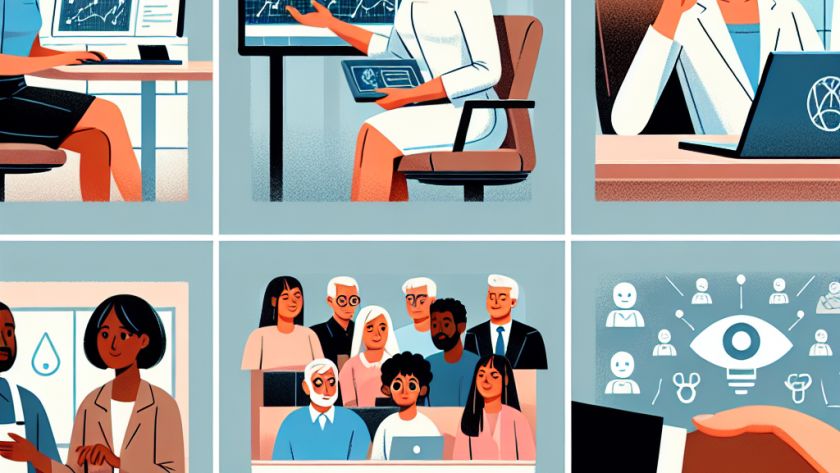


In the rapidly developing realm of healthcare artificial intelligence (AI), integrating AI into healthcare facilities can lead to transformations in workflow and improvements in patient outcomes. However, the successful implementation of AI demands an understanding of the diverse roles within an organization. These roles include Clinical AI Champions, Department Chairs or Vice Chairs, and IT…

In a recent episode of 'Lessons From the Inside', Sarah Kramer MD, Clinical Associate Professor of Clinical Informatics at University of Nevada Reno School of Medicine, and former CMIO, discussed the potential future directions and applications of artificial intelligence (AI) within the medical field.
Dr. Kramer heavily emphasized the importance of integrating AI into medical…

Clinical Artificial Intelligence (AI) has the potential to significantly transform the healthcare industry by improving efficiency, diagnostic accuracy and patient outcomes. However, to effectively utilize AI in high-stakes clinical settings, it is important to have a detailed, analytics-driven approach to measure performance and ascertain the overall value added to the organization. A lack of robust…

The infographic article is centered on the challenges posed by the adoption and integration of Artificial Intelligence (AI) in contemporary health systems. It discusses various factors like budget constraints, lack of AI policy, shortage of expertise, privacy and security concerns as well as data issues that may hinder successful AI deployment.
One of the first challenges…

A Pioneering User of Imaging AI Provides Guidance for Effective Implementation at Your Establishment
In a webinar titled "How it Started vs. How it's Going: AI Early Adopters Discuss how the Technology has Changed Practice," Axel Wismueller, MD, PhD, who is the Director of Artificial Intelligence in Radiology Laboratory, and also from the Department of Imaging Sciences and Department of Biomedical Engineering at University of Rochester Medical Center, shed…

Implementing artificial intelligence (AI) in a healthcare setting is not a solitary effort. It involves a collective contribution from team members who may form a "clinical coalition." Clinical Associate Professor Sarah Kramer underscores the integral elements that contribute to developing a robust coalition which supports the incorporation of AI.
Integrating AI into healthcare systems is…

"AI in 5" is a video series airing insights from Elad Walach, CEO of Aidoc, who takes viewers through an insightful exploration of different facets of clinical Artificial Intelligence (AI) within a time frame of five minutes or less. The aim of this series is to present the complexities of AI in a quick, easy-to-understand…


In a webinar, Dr. Dushyant Sahani, Chair of Radiology at the University of Washington Medicine, discussed the advent of larger health systems, increasing demand for medical imaging, and the role of Artificial Intelligence (AI) in managing these factors across wide-ranging facilities.
Dr. Sahani kicked off the webinar by talking about the transformation healthcare has gone…

In the latest episode of "Lessons from the Inside," Jeffrey Sturman, the Senior Vice President and Chief Digital Officer of Memorial Healthcare System shares valuable insights on the implementation of Artificial Intelligence (AI) within the healthcare sector. Focusing particularly on the maturation of AI in medical imaging, he discusses how the technology has substantially upgraded…

Jeffrey Sturman, the Senior VP and Chief Digital Officer at Memorial Healthcare System, recently shared insights from his experiences working with Artificial Intelligence (AI) in healthcare delivery. His observations outline recommendations and future scenarios for hospital executives considering adopting AI into their own systems. These perspectives allow other leaders to garner mutual benefits and learn…
